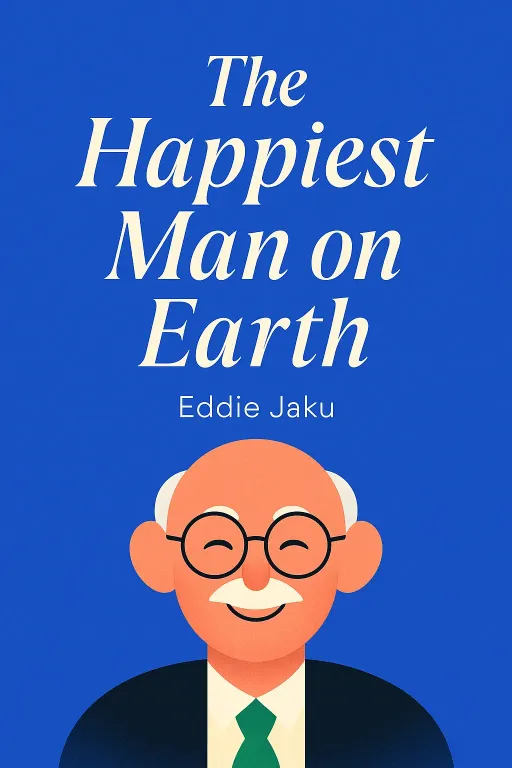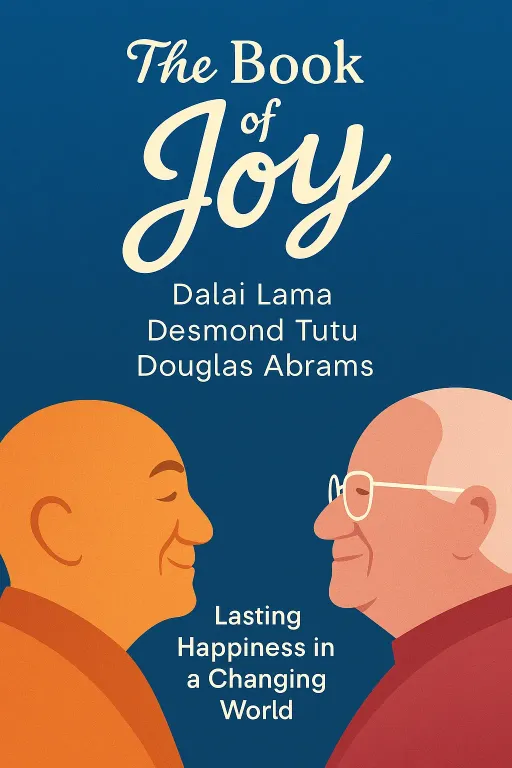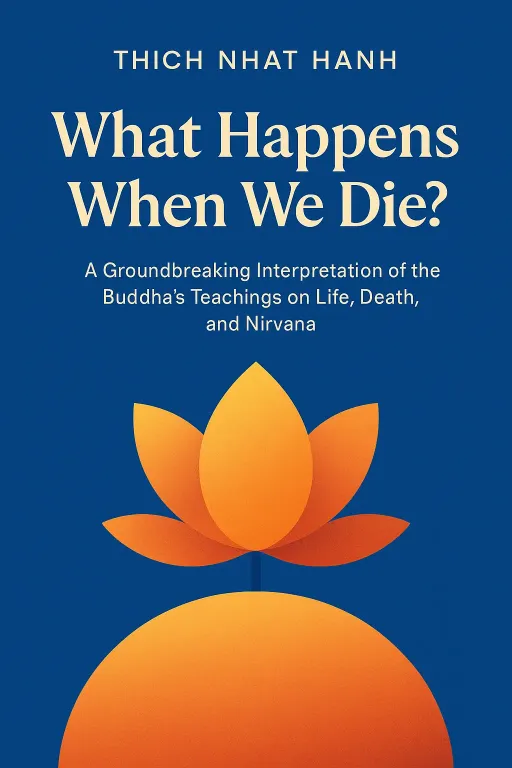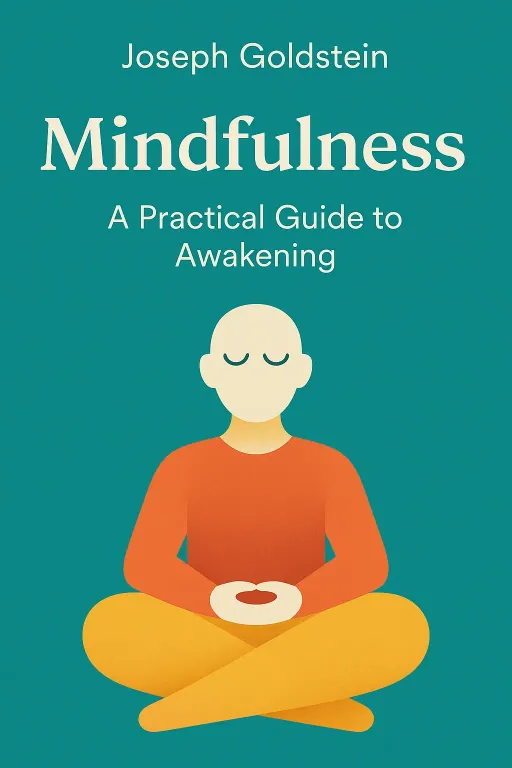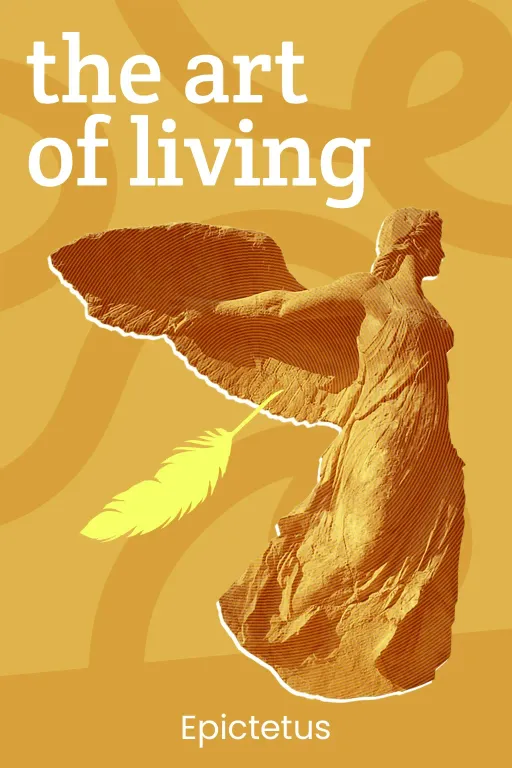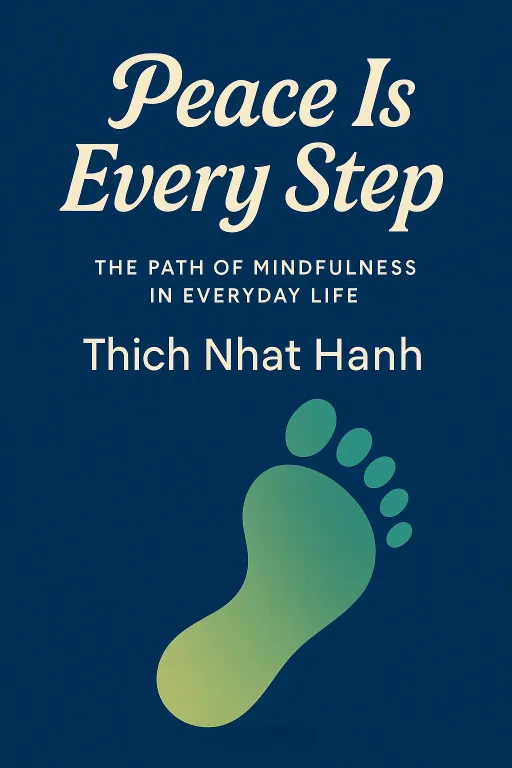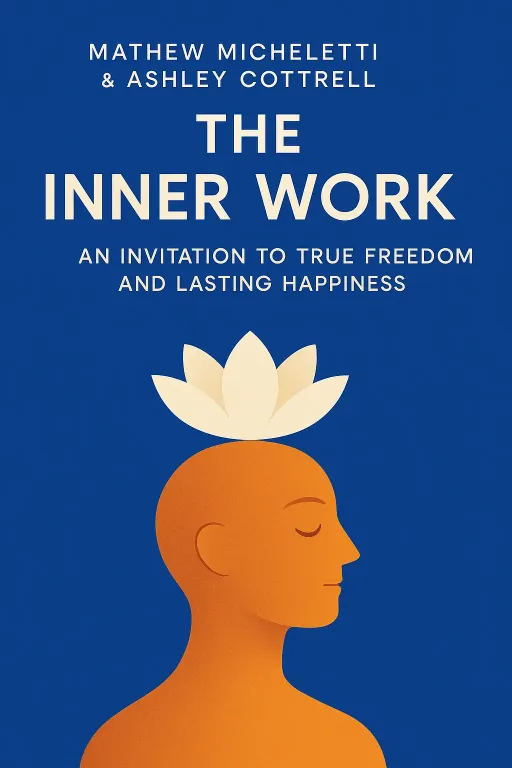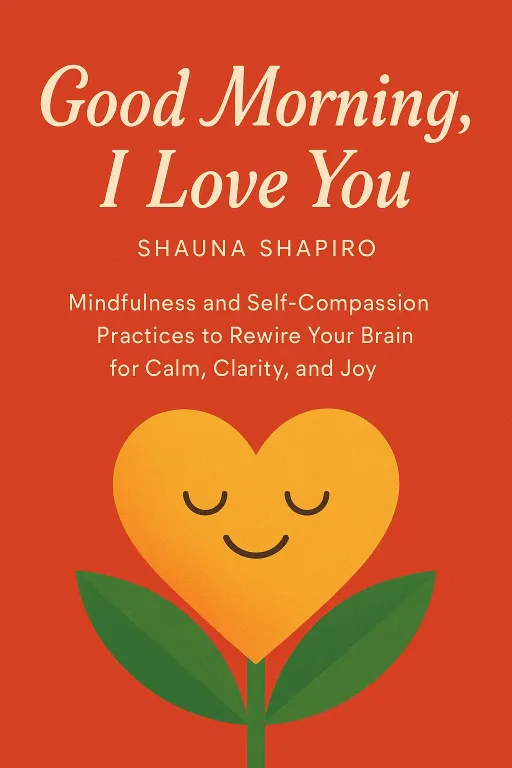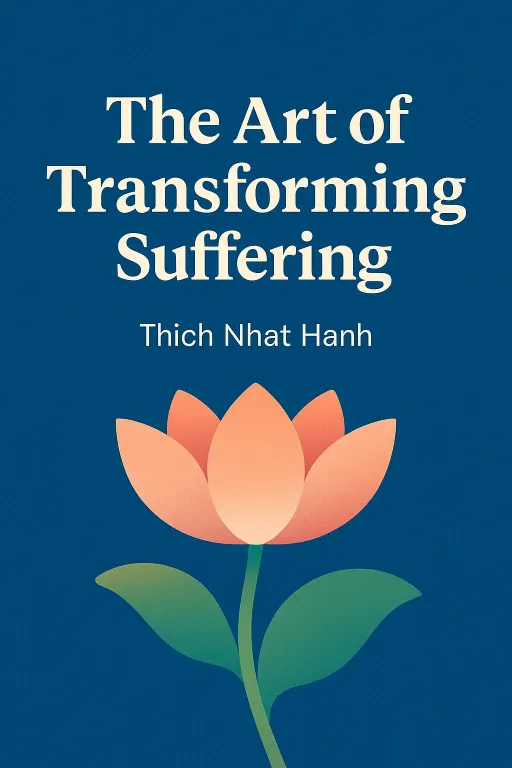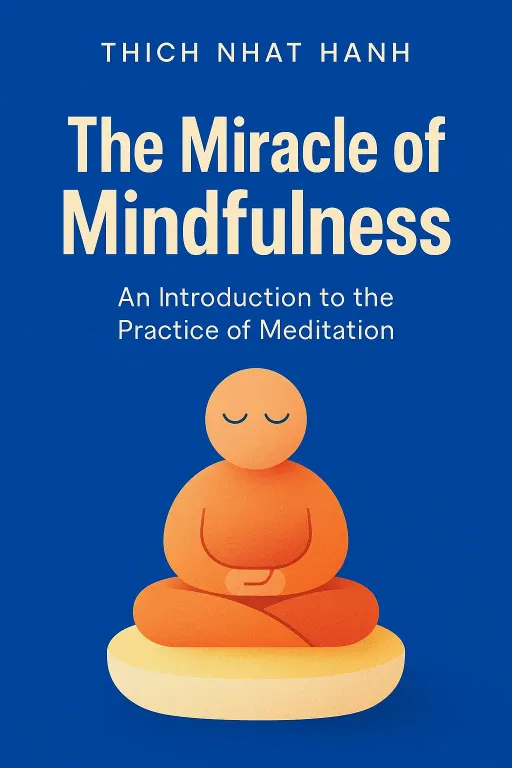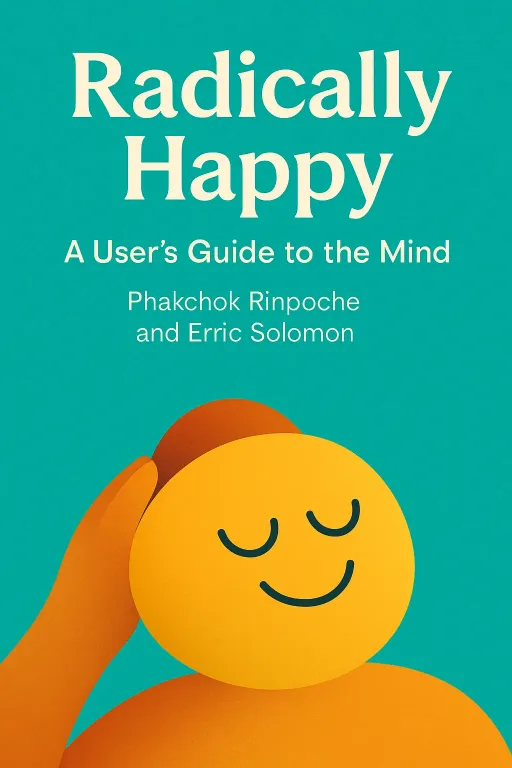
Debug Your Unruly Mind
10 minA User’s Guide to the Mind
Golden Hook & Introduction
SECTION
Laura: Most self-help promises to fix your life by adding more: more habits, more rules, more discipline. But what if the secret to lasting happiness isn't about adding anything, but about making one tiny, radical shift in how you see the chaos that’s already there? Sophia: I like that. Because my life already feels full enough without adding a 12-step morning routine. The idea of a single shift is much more appealing. What’s the source of this wisdom? Laura: It’s the provocative question at the heart of Radically Happy: A User's Guide to the Mind by Phakchok Rinpoche and Erric Solomon. And this book has been praised by some of the biggest names in psychology and mindfulness for its fresh approach. Sophia: And that author pairing is what immediately caught my eye. You have a respected Tibetan Buddhist master, Phakchok Rinpoche, and then you have Erric Solomon. He’s not just a meditation teacher—his background is in Silicon Valley. He was a tech entrepreneur who, as a teenager, was part of the AI lab at M.I.T. with pioneers like Marvin Minsky. That is such an unexpected combination. Laura: Exactly! And that's the magic of the book. It takes these ancient, profound ideas about the mind and presents them with the clarity of a techie, like a user's guide for our modern, constantly-wired brains. It’s this fusion that makes the whole thing click. Sophia: A user's guide to my own mind. Honestly, I think mine came without an instruction manual, so I’m all ears. Where do we start?
The 'Unruly Guest': Hacking Your Own Mind
SECTION
Laura: Well, the book starts with a metaphor that I think everyone can relate to. It suggests we think of our mind, or at least our constant stream of thoughts, as an "unruly guest." Sophia: Oh, I know that guest. He shows up at 3 AM to remind me of something embarrassing I said in 2008, or he’ll interrupt a peaceful moment to start making a to-do list for 2027. He’s the worst. Laura: He is the worst! And he’s relentless. He’s the inner critic, the worrier, the planner, the judge. He just walks into the room of your mind, puts his feet up on the coffee table, and starts talking, whether you want him to or not. And our default reaction is to argue with him. Sophia: Right. I tell him, "That's a stupid thing to worry about," or "Can you please shut up, I'm trying to watch a movie?" It becomes this exhausting internal battle. Laura: Precisely. We try to reason with the guest, or yell at him, or distract ourselves to ignore him. But he always comes back. This is where Solomon’s unique background becomes so powerful. Coming from a world of cognitive science and AI, he approaches the mind as a system. A system with predictable, albeit chaotic, patterns. Sophia: So he’s not thinking of it as some mystical soul-searching, but more like debugging a piece of code? Laura: In a way, yes. The book’s core insight is that you can’t force the unruly guest to leave. The radical shift is to change your relationship with him. Instead of fighting him, you just… watch him. You become a neutral observer of your own thoughts. Sophia: Hold on. Just watch? That sounds incredibly passive. If there's a voice in my head telling me I'm going to fail at a big presentation, I can't just sit back and say, "Huh, look at that thought." I need to do something about it. Laura: That's the paradox. The book argues that the act of doing something—of fighting the thought—is what gives it power. When you argue with the guest, you’re engaging him in conversation. You’re validating his presence. The alternative is to simply notice him without getting hooked. Laura: You can say to yourself, "Ah, there's the 'you're going to fail' thought again. Interesting." You don't have to believe it. You don't have to argue with it. You just acknowledge its presence, like noticing a cloud passing in the sky. Sophia: It’s like taking the batteries out of the remote. The guest is still there, yelling at the TV, but he can't change the channel anymore. He has no actual power over what's happening. Laura: That’s a perfect analogy. You’re decoupling the thought from your reaction. And according to the authors, this is the first step to becoming the master of your own mind. You’re not controlling the thoughts; you’re controlling your engagement with them. It’s a subtle but profound hack. Sophia: Okay, so observing the guest instead of fighting it... that feels less stressful. But the book's title is Radically Happy. That implies something more intense than just watching my thoughts. What makes it 'radical'?
Radical Acceptance: Finding Joy in the Chaos
SECTION
Laura: That's the perfect question, because it leads directly to the second core idea. The 'radical' part comes from what you do after you start observing your thoughts. It’s about radically accepting the entire landscape of your experience, not just the parts you like. Sophia: What do you mean by the entire landscape? Laura: Our minds are constantly judging. This is good, this is bad. This is calm, this is chaotic. This is productive, this is a waste of time. We spend all our energy trying to maximize the 'good' and eliminate the 'bad'. The book argues that this constant struggle is the primary source of our unhappiness. Sophia: Because you can't ever win. There's always going to be something 'bad' happening. A traffic jam, a difficult email, a global pandemic... Laura: Exactly. The radical move is to drop the labels. To embrace confusion, anxiety, and frustration not as problems to be solved, but simply as experiences. As part of the texture of being alive. Sophia: That sounds lovely and poetic, but in the real world, some things just are bad. A looming deadline, a difficult conversation with your boss... I can't just 'radically accept' my way out of paying my bills. How does this apply when the chaos is external and demanding? Laura: This is the most common misunderstanding. Radical acceptance isn't passive resignation. It's not about giving up. It's about changing your internal relationship to the external pressure. Let's use an analogy. Imagine you're caught in a rainstorm. Sophia: Okay, I'm soaked and miserable. Laura: The typical approach is to tense up, curse the rain, and frantically run for cover. All your energy is consumed by resisting the reality that it is, in fact, raining. You're fighting the storm. Sophia: Which is exhausting and doesn't make the rain stop. Laura: Right. The radical acceptance approach is to first, stop fighting. You acknowledge, "It is raining." You feel the water on your skin, you hear the sound it makes. You are fully present with the reality of the situation. From that place of calm acceptance, you can then make a much clearer decision. You can walk calmly to shelter, or decide to just enjoy the feeling of the rain. Your actions become effective because they aren't fueled by frantic resistance. Sophia: So, with the looming deadline, instead of panicking and thinking "This is a disaster, I'm overwhelmed," I would first accept, "Okay, this is a high-pressure situation. I feel anxiety. That is what's happening right now." Laura: Precisely. And once you accept the feeling of anxiety without judging it as a catastrophe, you free up all the mental energy you were using to fight it. That energy can then be channeled into actually doing the work. You become more focused, more creative, and more resilient, not because you eliminated the stress, but because you stopped fighting it. Sophia: Wow. So the radical act is to stop the internal war. To welcome all the guests—the anxiety, the confusion, the excitement—and just let them be. Laura: And in doing so, you discover a kind of happiness that isn't dependent on everything being perfect. It's a stable, deep sense of well-being that can coexist with life's inevitable chaos. That’s what they mean by 'radically happy'.
Synthesis & Takeaways
SECTION
Sophia: It’s all starting to connect for me. It’s a two-step process. First, you have to recognize that the voice in your head, that 'unruly guest,' isn't actually you. It's just a pattern of thought. Laura: Yes, you create that initial separation. You go from being the thought to being the observer of the thought. Sophia: And then, the second, more radical step is to stop judging what you observe. To welcome the chaos and the calm with the same open, non-judgmental awareness. Laura: Exactly. And when you put those two together, you get what the book calls a "user's guide to the mind." It’s not about finding a magic bullet to erase all your problems. The real 'hack' is a fundamental shift in perspective that frees you from the prison of your own reactions. This is why the book has been so well-received; it makes this profound spiritual concept feel incredibly practical and achievable for anyone. Sophia: So the first step isn't to sign up for a ten-day silent retreat or to master some complex meditation technique. It’s just… noticing. Noticing the 'guest' when it shows up. Laura: That's it. That’s the entry point. So here’s a simple, concrete action for anyone listening. For the next 24 hours, just try to notice one of your mind's favorite thought patterns. Maybe it's the 'what-if' worrier, or the 'should-have-done' critic. Don't fight it. Don't judge it. Just notice it and say, "Ah, there you are again." Sophia: I love that. It’s so simple. And we'd love to hear what you all discover. What are the favorite topics of conversation for your 'unruly guests'? Find us on our social channels and let us know. It’s always comforting to know you’re not the only one with a weirdly specific internal monologue. Laura: It truly is. This has been a fascinating look at a powerful idea. Sophia: Absolutely. A great reminder that sometimes the biggest changes come from the smallest shifts. Laura: This is Aibrary, signing off.
